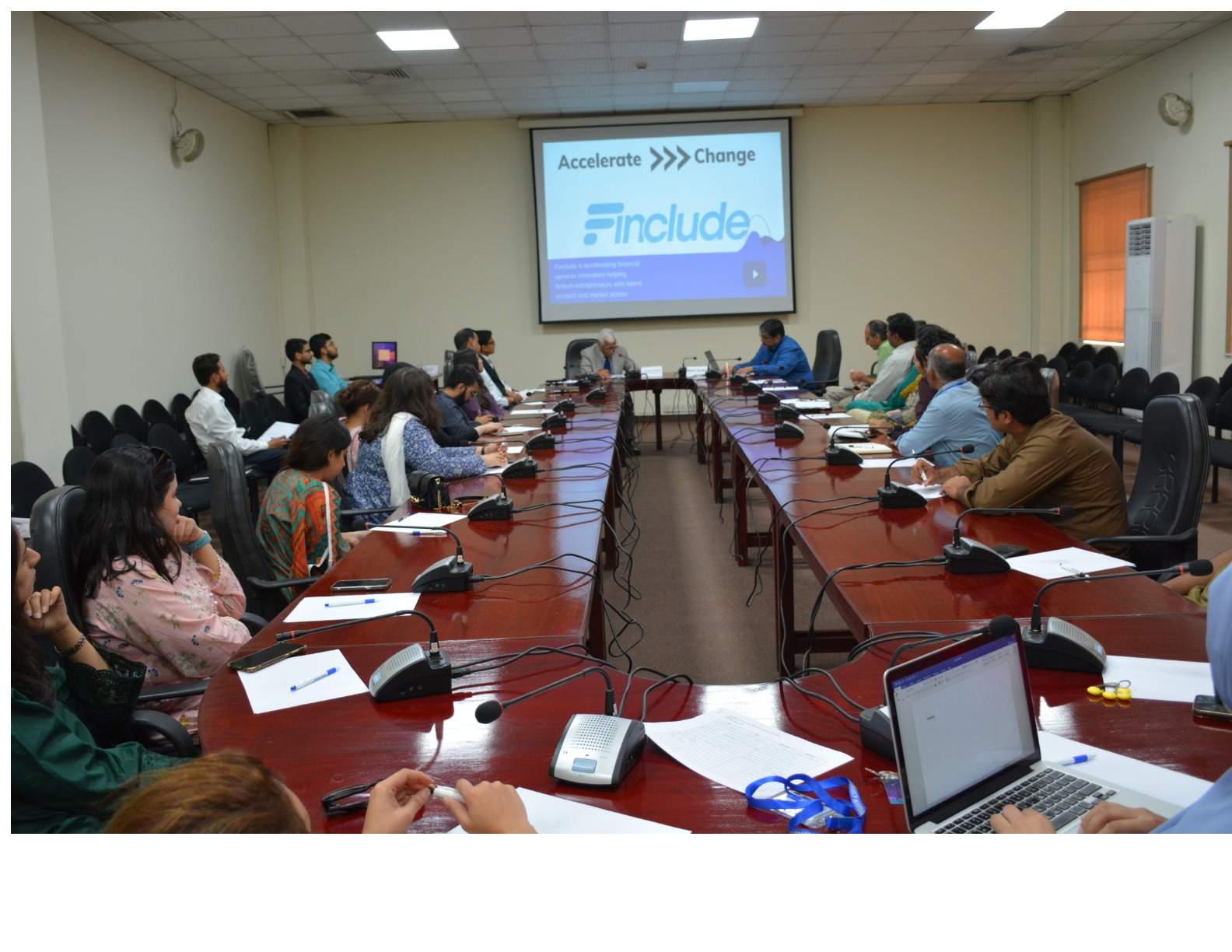
Financial Inclusion- Public Policy for Open Data-Driven Solutions
Seminar
Past Event
Apr 12, 2023 - 3:00 pm |
Apr 12, 2023 - 4:30 am
Mohsin Termezy
E-002 CPPG FCCU
Upcoming Event
On Wednesday 12th April 2023, CPPG organized a seminar on Financial Inclusion- Public Policy for Open Data Driven Solutions by Mohsin Termezy. Mohsin Termezy is a digital banking evangelist with more than 25 years of experience in banking, telecom, supply chain, and distribution channels. He has also worked within the fintech sector and has current engagements with a variety of institutions including the State Bank of Pakistan, Pakistan Microfinance Sector, Karandaaz, IFC, World Bank, and USAID. He is also the founder of Finclude and a co-founder of Dastak. Dr. Saeed Shafqat, the Founding Director of CPPG at FCCU, introduced the guest speaker and moderated the session.
Mr. Mohsin Termezy initiated his talk by broadly defining the term financial inclusion, implying; providing fair access to financial services to different economic strata of society, which they can access, utilize, and consume financial services ecosystem in a sustainable and responsible way. He informed that out of 180 million cell/smartphone users, only 30 million have access to financial services. The highest penetration numbers are from Islamabad and Gilgit-Baltistan owing to the high literacy rate of the regions. Whereas, male registrations are much higher than women, which are not even halfway to the male counterpart. Whereas, male registrations are much higher than women, which are not even halfway to the male counterpart. Further, discussing the pyramid of financial inclusion (its entry-level requirements and growth), he talked about how securing an account for holding payments is the first step. After that comes the consumption of that money for bill payments followed by the third tier of electronic payments (e-commerce purchases and educational fee). Next is through the process of borrowing money for creating new infrastructure, which is finally succeeded by insurance and saving. At the base of it, 30 percent of people have been able to secure accounts while only 3 percent have insurance.
In addition to this, while talking about the need for Internet in today’s world, he argued in favor of the fin-internet, which means to financially enable Internet helping people to create wealth for themselves. The successful operation of the fin-internet demands providing counseling, direction, and motivation to the young strata of society. Further sharing the journey of the Fin part of the internet, he explained the evolution of digital banking from traditional banking. According to him, the progression has been in alternate ways and forms–from the teller to ATMS, call centers, web, mobile, and social sites. It began with connecting banks to telecom operators. The journey of Telcos (GPRs) with banks started from airtime. It began with charging phones through a card, later on shifting to transfer mode. Telcos also had this pseudo currency called airtime that made people buy goods through money. Whereas, the public policymakers decided that we won’t allow telecom to form a new money format. It was pertinent to keep airtime and money in separate boxes which contributed to the creation of a novel concept called a Wallet. Through wallets, phone balance and money balance could be kept alone. This further revolutionized the system of banking where agents were created, through which money could be easily sent to remote areas.
Additionally, sharing the evolution from payment to purpose-based banking, he discussed how billing became the first value proposition through the easy paisa wallet. How the payroll proposition was a utility as it became easier to give payroll through wallets. Further, the introduction of international remittances made it easy to send money to relative. This entire process was followed by the creation of cards, ecommerce, ATMs, saving, microfinance, and now health cards. Gradually, the boundaries between Telcos and banks started merging. The system slowly moved from payment to transaction banking. As of now, the system records the purpose and story behind each transaction which helps in predicting the future of the next transactions. The new age bank provides a platform where multiple buyers, takers, and sellers are connected and they are value added in their connectivity. But the situation of Pakistan in this age of digital banking is worrisome as we are still trying for the financial inclusion of the poor and marginalized. This has resulted in another complexity by the emergence of alternate money-making channels like crypto.
Mr. Mohsin further talked about the need of creating a link between banks, fintech, and academia. The academia must help in carrying out research related to payment methods, value proposition, acquisition of customers and work on bringing case studies so that the persisting knowledge gaps could be filled. Moreover, innovation labs should be created where social experiments must be carried out. He shared the story of his organization, Dastak, which is working on the same radar acting as an alternate channel and is carrying out experiments through innovation labs. This discussion was further followed by a lively Q&A session with the participants.
Dr. Saeed Shafqat thanked the guest for his innovative and futuristic insights on the topic and continued collaboration with the CPPG.






